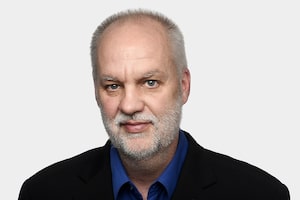Rape culture is in the headlines in Canada.
A woman has alleged that she was sexually assaulted by eight Canadian Hockey League players after a fundraising gala in June, 2018, in London, Ont.; police have reopened that investigation. In Halifax, police are also investigating an alleged sexual assault involving members of Canada’s 2003 world junior hockey team at a hotel. As new details emerge daily, reports of these incidents have been made worse by alleged attempts by Hockey Canada to sweep the claims under the carpet, all the while using some of the organization’s accumulated millions to settle such lawsuits.
Former Vancouver Canucks forward Jake Virtanen is also currently on trial for sexual assault; he has denied the allegation. Meanwhile, in Quebec, well-known comedian and radio host Philippe Bond said he is “withdrawing from public life” after revelations about a decade of alleged sexual misconduct.
Then there was the shocking case of Quebec engineer Simon Houle, who was convicted of sexual assault and voyeurism, but given a suspended sentence by a judge who cited his “good morals.” The Quebec judicial council will examine a complaint about the decision.
And all that came in just the last month alone.
As sordid as these cases are, it’s important to highlight them. A reckoning is in order.
The alleged sexual assaults are certainly bad enough in themselves, but these cases also reek of profound institutional betrayal. When we have powerful and supposedly respected sporting, cultural and legal institutions acting like the boys’ clubs of yore, the problem extends well beyond the so-called “bad apples”.
These cases are a grim reminder of how pervasive sexual violence is in society – and of how we have likely barely scratched the surface on exposing a culture that too often trivializes such actions.
Somewhere between one-third and one-quarter of Canadian girls and women will be sexually assaulted during their lifetime. Only a tiny fraction of cases are reported to police. There are many reasons for that, including fear, shame, stigma and worries about not being taken seriously.
Yes, men are victims of sexual violence too, especially in sporting circles where hazing and bullying are the norm, as evidenced by high-profile cases like those of Sheldon Kennedy, Theo Fleury and Kyle Beach. But girls and women are unfortunately abused at much higher rates.
In recent years, spurred by the #MeToo movement, many more victims of sexual assault have come forward, but they still do so at great personal and professional peril. Victim-blaming remains all too commonplace. Often when high-profile stories of sexual assault surface, they are greeted with an incredulous chorus of “nobody knew” which, when we start listening to survivors, shift to an “everybody knew” narrative. Given this pattern, how can victims not feel gaslit?
A sexual assault can be traumatizing, but ensuing treatment by police, the courts, and the court of public opinion (especially social media) can be re-traumatizing. In fact, one of the aspects that is most neglected is rape culture’s effect on women’s health. Some women suffer physical harm during assaults, but what is much more common is emotional and psychological harm. It is difficult to calculate the effect that sexual assault has on a woman who then has to live in fear – the worry that any date could quickly turn to violence or non-consensual sex.
There is a clear connection between rape culture and mental health. Survivors of sexual assault tell of trauma, post-traumatic stress disorder, panic attacks, loss of self-confidence, anxiety, depression and more. There is research showing that rape is among the most harmful kinds of trauma. It is not uncommon for victims to try to cope by turning to alcohol or drugs; sometimes the trauma can be too much to bear, and it can lead to suicide. This trauma can also be passed on through the generations.
Far too often, however, support for victims is lacking – particularly since sometimes, symptoms can surface or resurface years later, triggered by a memory or a newspaper headline.
If victims of sexual assault are going to be able to heal, one of the essential changes required is taking a more survivor-centered approach – one that empowers survivors by prioritizing their rights, safety, well-being, needs and wishes. Some victims may want their abuser or abusers to be held publicly accountable, but some just want support and counselling.
We are not going to prosecute our way out of this deeply ingrained problem. It’s going to take more than a vague “action plan.” Ultimately, what has to change is a culture and a society that has allowed for misogynistic sexual violence.
As a recent Globe and Mail story astutely stated: “To end violence against women, Canada needs to focus on men.” But that doesn’t just mean focusing on individual men like hockey players and comedians who allegedly engage in this misconduct. It also means focusing on their enablers: institutional, cultural and political.
 André Picard
André Picard